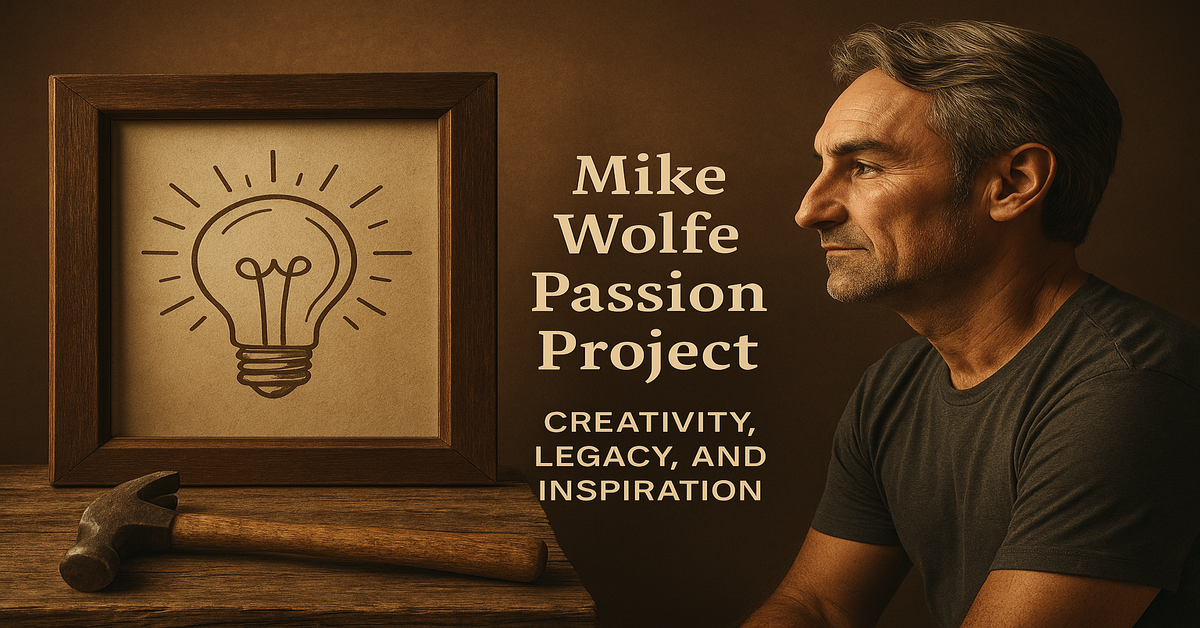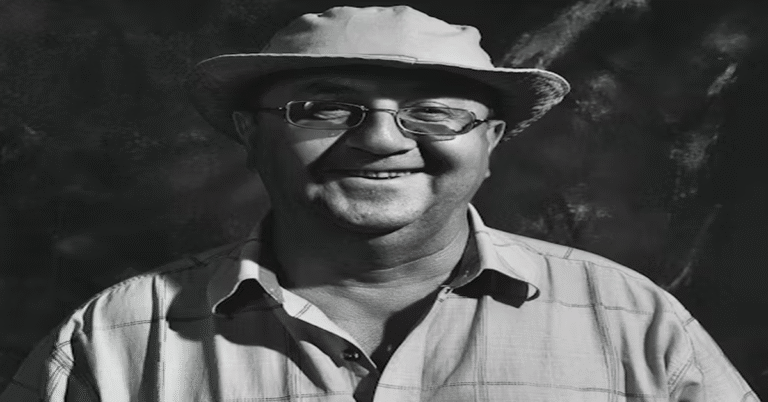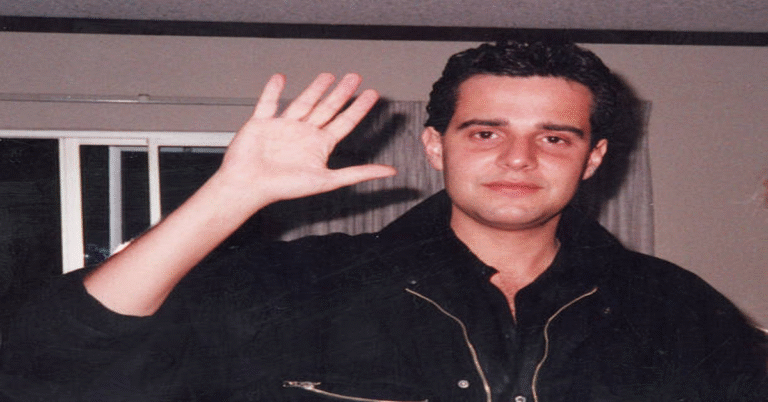
Passion projects often define individuals in ways that surpass professional achievements. For Mike Wolfe, widely recognized as a creative figure with a flair for discovery, design, and storytelling, a Mike Wolfe passion project is not simply a side endeavor. It represents a deep, personal investment of time, creativity, and energy into something that aligns with his values, interests, and sense of identity. Unlike commercial obligations that are dictated by profit or industry demands, passion projects thrive on authenticity. They often reflect one’s personal philosophy, cultural vision, and desire to make a lasting impact.
This comprehensive article will explore the concept of Mike Wolfe passion project, the principles that drive it, the multiple ways it might manifest, and its potential influence on both community and culture. We will analyze the characteristics of passion projects, highlight the strategies needed to sustain them, and discuss the broader implications for creativity and innovation. By the end, you will see why such projects matter—not only for individuals like Wolfe but also for the larger society that benefits from authentic creative pursuits.
Understanding Passion Projects
Before diving into Mike Wolfe passion project specific endeavors, it is essential to understand what passion projects are and why they matter. A passion project is any self-driven initiative pursued not for financial gain but for intrinsic satisfaction. People take on such projects because they feel deeply connected to the activity or outcome. Unlike jobs or contractual work, passion projects typically begin with curiosity, love for the subject, or the desire to create something meaningful.
Key Characteristics of Passion Projects
| Attribute | Description | Example |
|---|---|---|
| Authenticity | Rooted in genuine personal interest, not external expectations. | Restoring vintage items out of love for history. |
| Creativity | Provides a platform to experiment and innovate freely. | Designing unique furniture from reclaimed materials. |
| Dedication | Requires consistent energy and commitment even without external reward. | Documenting forgotten cultural spaces. |
| Impact | Often leaves a legacy that benefits others. | Building a community museum or archive. |
| Flexibility | Adapts over time as ideas evolve. | Expanding from one creative form to multiple mediums. |
Mike Wolfe’s passion project, in this sense, can be seen as an extension of his life philosophy—embracing history, storytelling, and creativity while connecting with people who share similar values.
Why Passion Projects Matter
Mike Wolfe passion project matter because they provide freedom, meaning, and fulfillment that are not always present in structured professional settings. For creative individuals like Wolfe, they serve as laboratories of imagination where ideas can flourish without restrictions. They also contribute positively to society by preserving culture, inspiring innovation, and creating spaces for community dialogue.
Some of the benefits of pursuing a passion project include:
- Personal Growth: Individuals learn new skills and expand their creativity.
- Cultural Contribution: Projects often preserve heritage or highlight unique stories.
- Community Building: They bring together like-minded people.
- Innovation: Freed from corporate structures, new concepts often emerge.
- Fulfillment: Unlike commercial work, passion projects provide deep emotional satisfaction.
Mike Wolfe and the Essence of His Passion Project
Mike Wolfe passion project is widely recognized for his interest in discovery, preservation, and storytelling. His passion project, therefore, likely extends these themes by focusing on restoration, design, history, and community engagement. For him, passion is not just about collecting or curating but also about reimagining the value of forgotten things and finding beauty where others see waste.
This approach reflects a broader mindset: that creativity is not always about inventing something entirely new but about breathing new life into what already exists. His passion project encapsulates this philosophy, serving as a living testimony of how objects, places, and stories can find renewed relevance in contemporary culture.
Core Elements of Wolfe’s Passion Project
1. Restoration and Preservation
Mike Wolfe passion project emphasizes rescuing items, structures, or cultural artifacts that might otherwise disappear. Preservation not only saves history but also inspires future generations to value heritage.
2. Creative Design
By transforming what is old into something fresh and functional, the project showcases creativity. Design becomes a tool to blend the past with modern aesthetics.
3. Storytelling
Every object or place has a story. Wolfe’s passion project uses storytelling to connect people emotionally to history, creating a sense of belonging.
4. Community Involvement
Mike Wolfe passion project thrives in isolation. His work engages communities by sharing spaces, creating dialogue, and encouraging participation.
5. Sustainability
Repurposing and recycling objects through creative use supports environmental sustainability, aligning the project with broader ecological concerns.
Challenges of Passion Projects
While passion projects are fulfilling, they are not without difficulties. Mike Wolfe passion project may encounter challenges such as:
- Funding Limitations: Passion-driven work may lack consistent financial support.
- Time Management: Balancing professional obligations with personal initiatives is often tough.
- Resource Access: Finding the right materials, spaces, or partners can be demanding.
- Recognition: Society may undervalue passion projects compared to commercial work.
Despite these challenges, such projects thrive because they are fueled by commitment rather than profit.
The Broader Social Value of Wolfe’s Project
Mike Wolfe passion project is not just about personal satisfaction. It has broader social and cultural impact:
- Educational Value: Inspires people to learn about history and heritage.
- Cultural Revival: Rescues traditions or items that may otherwise fade away.
- Economic Potential: While not driven by profit, passion projects can generate community revenue (e.g., tourism, exhibitions).
- Inspirational Role: Motivates others to pursue their passions, creating a ripple effect of creativity.
Table: Personal vs. Passion Projects
| Factor | Professional Work | Passion Project |
|---|---|---|
| Motivation | Driven by income or obligation. | Driven by interest and love. |
| Time Frame | Fixed deadlines. | Flexible, ongoing. |
| Rewards | Financial, career growth. | Emotional, personal fulfillment. |
| Ownership | Shared with employers. | Full personal control. |
| Risk | Lower due to structure. | Higher due to uncertainty. |
This comparison makes clear why Mike Wolfe passion project is so significant: it provides the freedom to create without constraint.
Sustainability and Legacy of the Project
The legacy of Mike Wolfe passion project lies in its sustainability. By combining creativity with preservation, it creates something that lasts beyond personal achievement. Legacy is not measured solely in fame but in impact—how much the project inspires others to care, create, and continue the vision.
Inspiration for Others
The story of Mike Wolfe passion project offers valuable lessons for anyone considering their own personal initiative. It teaches us that:
- You do not need massive resources to begin. Passion is the fuel.
- Authenticity resonates. When you pursue what you love, others connect with it.
- Legacy matters more than profit. Building something meaningful outlasts material gain.
- Challenges are part of the journey. Commitment ensures sustainability.
Conclusion
Mike Wolfe passion project is more than a creative side pursuit—it is a testament to the power of following one’s heart. It reflects the importance of preservation, creativity, community, and sustainability, while highlighting the role of storytelling in connecting people to their shared heritage. His project shows that passion can transform not only objects or spaces but also lives, leaving a legacy that inspires future generations.
In a world often dominated by profit-driven ventures, passion projects like Wolfe’s remind us of the irreplaceable value of authenticity and creativity. They stand as powerful examples of how following one’s true interests can generate cultural, personal, and community-level impact.
FAQs
1. What is Mike Wolfe passion project project about?
It focuses on restoration, design, and storytelling, with a mission to preserve heritage, inspire creativity, and build community.
2. Why are passion projects important?
They provide personal fulfillment, foster creativity, preserve culture, and create social impact beyond professional achievements.
3. What challenges do passion projects face?
They often face financial constraints, time management issues, resource scarcity, and lack of recognition, but dedication sustains them.
4. How does Wolfe’s project impact society?
It educates, revives culture, inspires sustainability, and brings people together around shared appreciation of creativity and history.
5. Can anyone start a passion project?
Yes. Anyone can pursue a passion project with dedication, authenticity, and consistency, regardless of resources or professional background.







